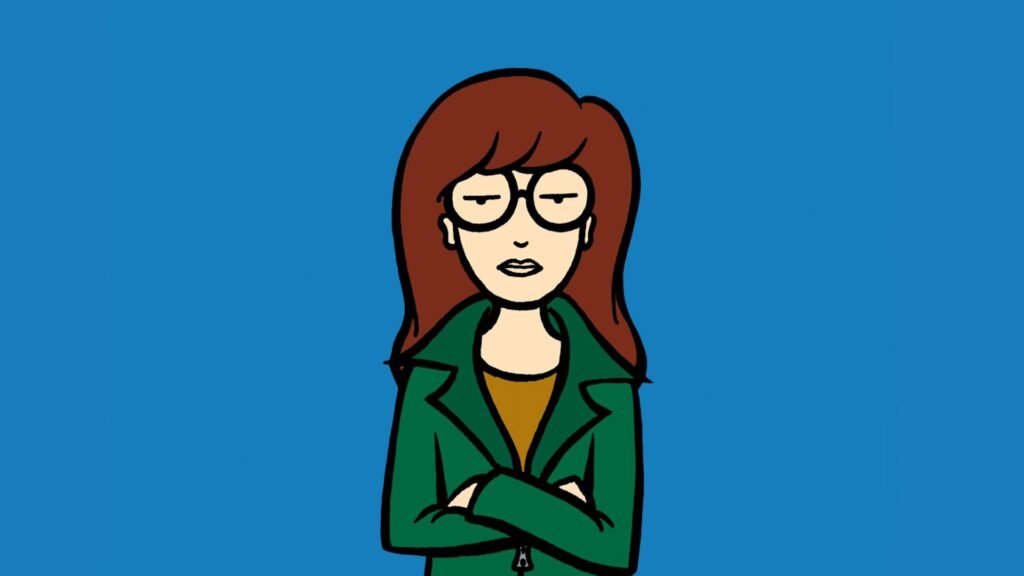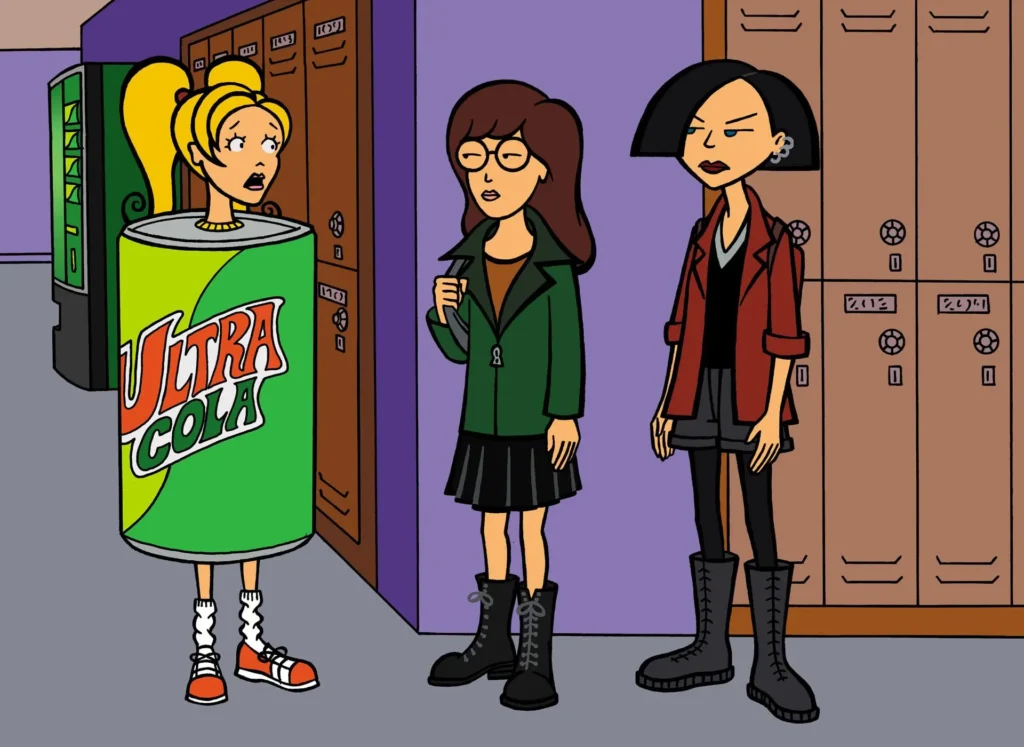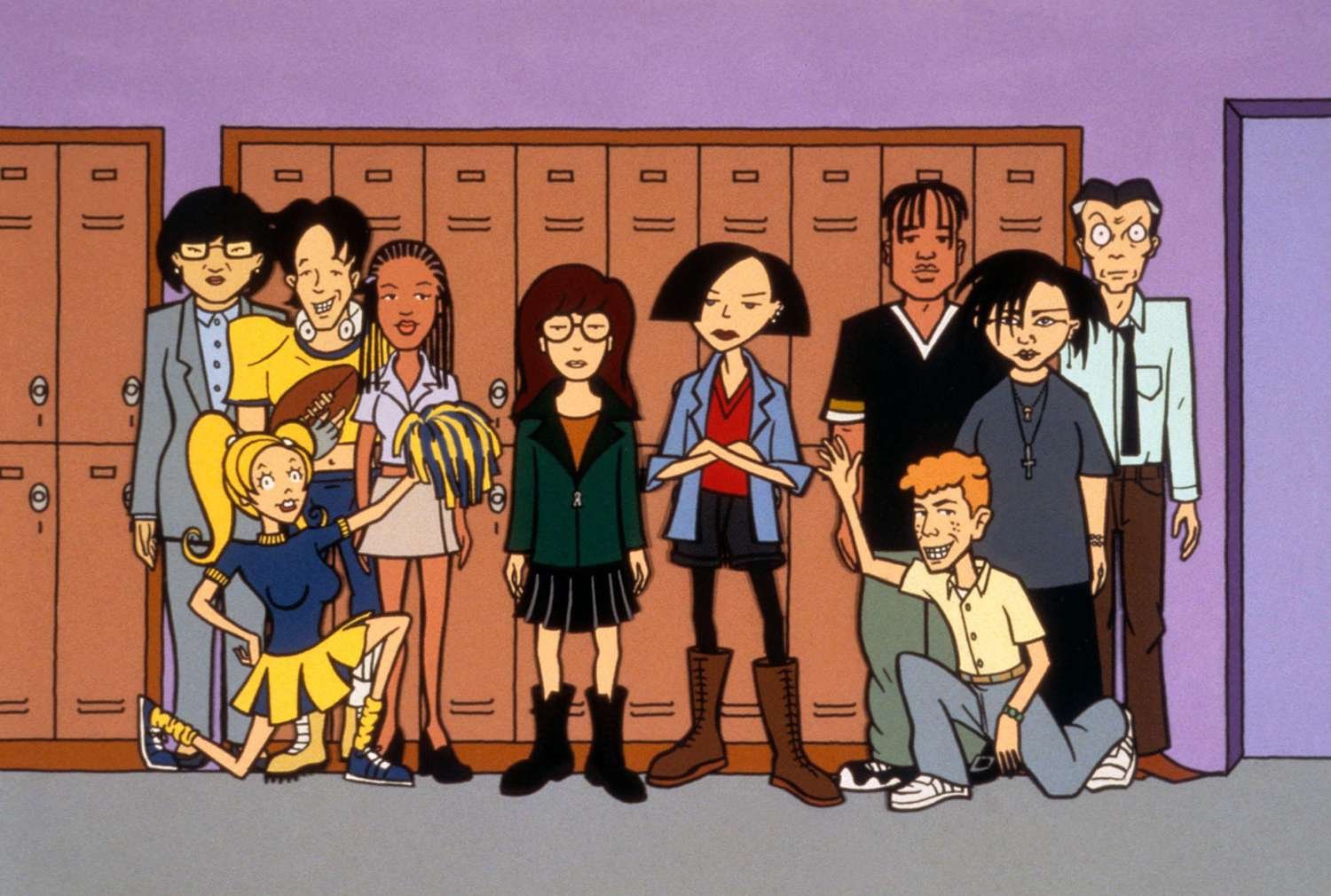In the current wave of nostalgia sweeping through pop culture, one name that keeps resurfacing is “Daria.” The mere mention of this 90s animated show conjures images of oversized glasses, sarcastic retorts, and the perpetually unamused face of its titular character. Just like those unexpected projections lighting up the New York City skyline, the renewed interest in this gem of a show seems to be cropping up everywhere.
For those who missed out on the original run, “Daria” was a spin-off from the equally beloved “Beavis and Butt-Head,” focusing on the life and times of Daria Morgendorffer, a high school misfit with an unparalleled talent for dry wit and social commentary. Premiering in 1997, the show was ahead of its time, delving into topics like teenage angst, societal pressures, and the absurdities of suburban life with a level of insight that still hits home today.

One of the show’s enduring themes is its unapologetic celebration of non-conformity. In a world where fitting in often feels like the ultimate goal, Daria stood out as a beacon of individuality. She refused to adhere to the norms of high school hierarchy, preferring instead to march to the beat of her own drum. And while her acerbic one-liners may have been rooted in disillusionment, they also served as a reminder that it’s okay to question the status quo and challenge the norms society imposes upon us.
In today’s culture, where the pressure to conform can feel overwhelming, Daria’s message feels more pertinent than ever. The constant flood of curated perfection on social media can leave us feeling inadequate and insecure, but “Daria” reminds us that it’s okay to embrace our flaws and be true to ourselves, even if it means standing out from the crowd.
Another theme that “Daria” tackled head-on was the often complicated dynamics of friendship and identity. From her complex relationship with her best friend Jane to her clashes with her superficial classmates, the show explored the highs and lows of teenage camaraderie with rare honesty. And while the characters may have been exaggerated for comedic effect, their struggles with issues like peer pressure, jealousy, and self-doubt felt all too real.
In an era where online connections often take precedence over real-life relationships, “Daria’s” portrayal of friendship as messy, complicated, and ultimately rewarding feels like a breath of fresh air. It’s a reminder that true connection requires vulnerability and authenticity, even if it means embracing the awkwardness and discomfort that comes with it.
Of course, no discussion of “Daria” would be complete without mentioning its feminist undertones. In a time when female characters were often relegated to the role of sidekick or love interest, Daria was a revelation. She was smart, independent, and unapologetically herself, challenging gender norms and smashing stereotypes at every turn.

In today’s society, where the fight for gender equality is ongoing, “Daria’s” message of empowerment feels as timely as ever. Whether she was taking down the patriarchy with a scathing critique or simply refusing to conform to society’s expectations of how a girl should behave, Daria served as a powerful reminder that women don’t have to play by the rules dictated by a male-dominated world.
In conclusion, while “Daria” may have first graced our screens over two decades ago, its themes of non-conformity, friendship, and feminism feel just as relevant today as they did back then. Like those unexpected projections lighting up the New York City skyline, “Daria’s” resurgence serves as a timely reminder that some things never go out of style. And in a world that often feels overwhelming and chaotic, sometimes we could all use a little dose of Daria’s unapologetic cynicism to help us see through the madness.
